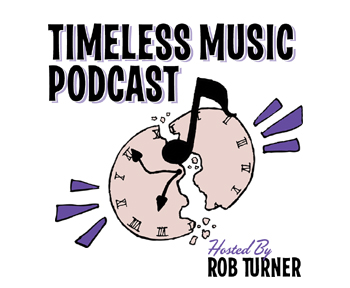
Dead & Company took a darkened Philips Arena stage and like the morning sun they gradually brought color and life, starting with a brief instrumental which settled into a bluesy gallop through the ubiquitous, “Truckin.” Oteil’s loud-and-clear bass and bright orange lights fixed on the front-and-center general admission floor each seemed to fuel the band to a mid-song energy burst. Bob Weir brought forth a vocal segue to what was, whether intentional or not, the evening’s tribute to Atlanta music icon Col. Bruce Hampton – a brief-but-tasty run through “Smokestack Lightnin’.” As orange lights shimmered on the perimeter of a purple stage with spots of blue on the crowd, I thought about how Hampton had performed his final concert at the Fox Theater just a mile and a half away seven months prior, and how this song had over the years received the benefit of his inimitable bellowing voice many times.
A breezy take on “Dire Wolf” was bookended by examples of both the benefits and drawbacks of the downtempo approach this band often employs. While “Feel Like a Stranger” offered scattered moments of impressive interplay, it also never coalesced energetically. The slow tempos here resulted in more than a couple of moments of plodding. Whereas with “Loser” an almost halting pace helped tell the story as a dirty feel emerged which accurately portrayed anguish. The band was locked-in tight throughout with Mayer and keyboardist Jeff Chimenti offering particularly gorgeous colorings. At one point, Mayer goaded a seemingly spontaneous solo out of Jeff (he would do so again later during “Viola Lee Blues”). It was an outstanding version which earned an audience response so rousing it would elicit in turn a, “why, thanks” from Weir.
What followed was a pairing of songs each of which has many times been a first set centerpiece for this band. “Cassidy,” quickly spun off of The Grateful Dead page by moving away from the song structure early in the piece. Lighting designer Chris Ragan’s delightful contrast between the colors on the audience and those on the band seemed to propel the energy. As the last vocals were sung before the monster closing jam the intensity of the moment was heightened by the lights focusing on the stage alone. While improv lay within, this part of the song is starting to develop its own increasingly-multiple-sectioned Dead & Company sort of, “structure.” There was an almost orchestral feel at one point, before they dropped seamlessly into some sterling, gently-rhythmic quiet interplay.
Improv-lovers were then thrown a bone as this adventurous spirit led to a majestically open-ended exploration of the Garcia/Hunter masterpiece, “Bird Song.” Before we reached the first set of Weir/Mayer shared vocals, the band had made it clear that we were in for a ride. The careful listeners most certainly were, as a sea of textures, themes and rhythms were traversed, with Weir’s uniquely angular guitarwork frequently driving the train.
“Deal,” followed, and Mayer-jumping seemingly inspired similar audience behavior repeatedly. At one point multi-colored Grateful Dead poker chips spun above the band as a taut rhythm catapulted an electrified Chimenti. Mayer would take over with authority and tear it up for a bit before returning the song to the repeated chorus. He and Weir brought the 80 minute opening set to a close with some spirited vocal improvisation off of the timeless, “donthca let that deal go down.”
A groove-oriented “Help On The Way,” and a mesmerizing “Slipknot” began the 2nd set. Mayer aggressively set the tempo as the band transitioned into, “Franklin’s Tower,” which harbored a rabbit-like bounce. Mayer resolved one uproarious solo with a smooth move to an appropriately quiet prelude to the “may the four winds blow you safely home” verse. He also demonstrated restraint during “Comes a Time” allowing for Weir’s familiar guitarwork to be heard clearly behind Burbridge’s passionately delivered vocals. The entire band shined on the highlight of the set, an explosively moody “Viola Lee Blues,” which would dissolve into the drums segment.
Initially taking on a rainforest feel, drums unfolded into Mickey Hart and Bill Kreutzmann’s typically brilliant melding of electronic sounds, sampled vocals and artful traditional drumming. The duo would be joined by Oteil to help produce an intoxicating feel, which morphed into mystical realms when Mickey moved to “The Beam.”
The other members returned and soon Weir led them into “Wharf Rat,” which maintained its affecting beauty despite some rough harmonies and moments of tentative playing. “Throwing Stones” would follow with Peach-enhanced “Steal Your Face” artwork and at-times cascading screen art augmenting the music without being too distracting. Weir was commanding as the band powered its way through the song which is somehow even more timely today than when it was written over 25 years ago. A Weir-slide-and-crafty-Mayer-driven romp through “U. S. Blues” found John hopping around the stage with playful shame after one botched lyric. He shared with Weir lead vocals on this and the sole-encore glide through the beautifully reflective, “Brokedown Palace” which brought to an end another chapter in this band’s brief, but impressive history.
***
Ron Turner hosts the Timeless Music Podcast

and Inside Out wTnS alongside Seth Weiner.



No Comments comments associated with this post